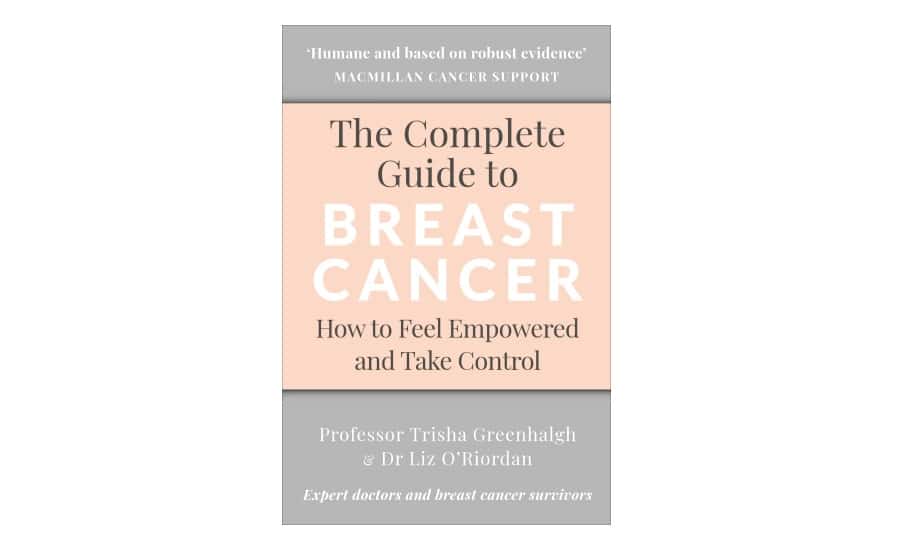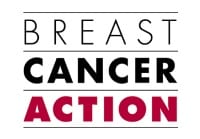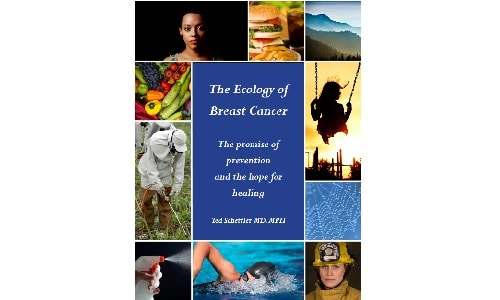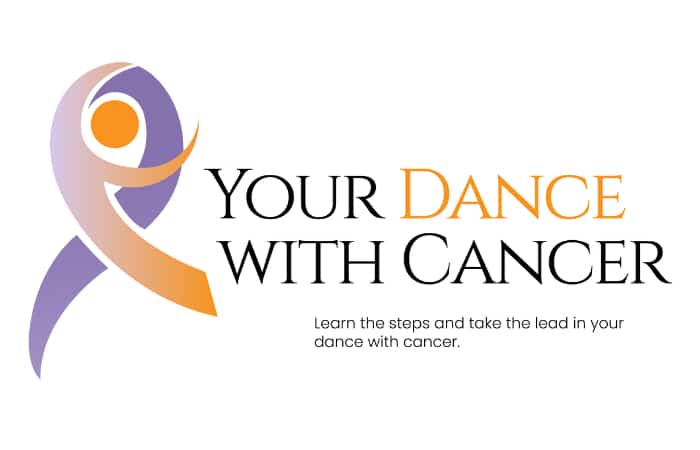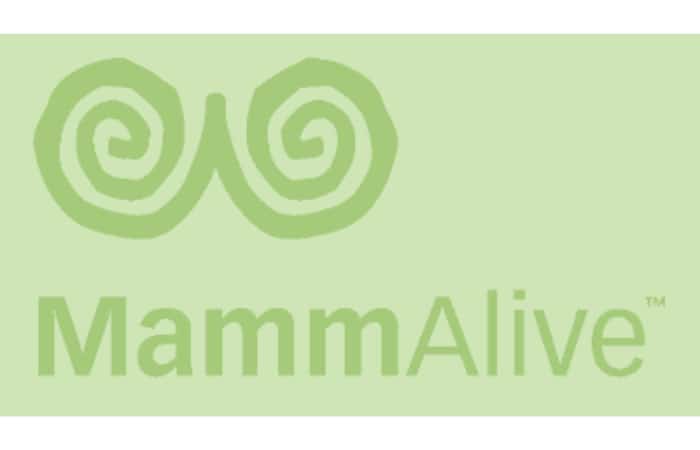At any time during your breast cancer experience
All throughout your cancer experience, you may turn your attention to boosting your health and resilience and also creating a body that is less supportive of cancer. Many practices and therapies that you can implement all throughout your cancer experience can improve survival, reduce your risk of recurrence, or help manage symptoms and side effects.
Also see separate sections in this handbook about further recommendations and approaches you can use at specific times during your cancer experience.
Top practices and therapies we have reviewed for improving cancer outcomes and body terrain at any time
Your body terrain is the whole environment in which your cancer grows and includes specific terrain factors that can impact cancer growth and development.
These practices and therapies have at least modest evidence for the medical benefits listed. We add to this list as we complete new reviews of practices and therapies.
Self-care practices
Complementary therapies
On this page
Improving cancer outcomes
We present self-care practices and complementary therapies supported by evidence to promote better cancer outcomes or body terrainthe internal conditions of your body, including nutritional status, fitness, blood sugar balance, hormone balance, inflammation, and more. Those with the best evidence are presented first.
A practice or therapy may show a stronger effect or have more evidence in some situations than in others. The evidence supporting the effects for each practice or therapy is listed in the full reviews available through the links.
Strong, good, or modest evidence of benefit for cancer outcomes
Strong evidenceconsistent, significant effects in several large (or at least one very large) well designed clinical studies or at least two meta-analyses of clinical studies of moderate or better quality (or one large meta-analysis) finding similar results (this is the CancerChoices definition; other researchers and studies may define this differently) indicates confidence that the practice or therapy has an effect as noted. Good evidencesignificant effects in one large or several mid-sized and well-designed clinical studies (randomized controlled trials (RCTs) with an appropriate placebo or other strong comparison control or observational studies that control for confounds) (this is the CancerChoices definition; other researchers and studies may define this differently) indicates that the practice or therapy is linked to the outcomes described with reasonable certainty. Modest evidencesignificant effects in at least three small but well-designed randomized controlled trials (RCTs), or one or more well-designed, mid-sized clinical studies of reasonably good quality (RCTs or observational studies), or several small studies aggregated into a meta-analysis (this is the CancerChoices definition; other researchers and studies may define this differently) means the practice or therapy may be linked to the outcomes described, but with a lower degree of certainty.
Healthy lifestyle: modest evidence
Specific to breast cancer:
- Better survival among people with high-risk positive stage 1–3 breast cancer but otherwise healthy with the highest scores for following a healthy lifestyle regarding physical activity; body weight; eating more fruits and vegetables and less red and processed meat or sugar-sweetened beverages; and low or no smoking or use of alcohol (modest evidence)
Eating Well: good to preliminary evidence
Some foods and eating patterns are linked to better survival, while others are linked to worse survival. Find strategies to eat well in this handbook.
Specific to breast cancer:
- Longer survival and fewer events such as metastases among people with healthy eating patterns (good evidence)
- Better survival among postmenopausal women eating foods high in plant lignans—flaxseed and sesame, but also whole grains, berries and some other fruits, vegetables such as broccoli and kale, and green tea—or fiber (good evidence)
- Better survival among people with breast cancer eating soy foods (modest evidence)
- Better survival and reduced risk of early events such as relapse or metastasis among people drinking coffee (preliminary evidence)
- Higher mortality among people with ER-positive tumors and those with higher body mass index (BMI) drinking sugar-sweetened soda beverages (modest evidence)
- Lower overall and cancer-specific mortality among people with breast cancer eating a diet for diabetes risk reduction before and after a diagnosis of breast cancer (preliminary evidence)
Cancer as a whole:
- Better survival among people with cancer as a whole following the recommended diet patterns of increasing vegetables and fruits and reducing red meat, processed foods, and saturated fats (modest evidence)
Moving More: strong to preliminary evidence
Find strategies to move more in this handbook.
Specific to breast cancer:
- Moderately better survival among people with breast cancer with higher activity levels compared to low levels (strong evidence)
- Moderately better survival among people with breast cancer increasing their activity levels after diagnosis (good evidence)
- Better cancer-specific survival among people with any level of physical activity after a breast cancer diagnosis (preliminary evidence)
Cancer as a whole:
- Moderately better survival with cancer as a whole among people with higher activity levels after diagnosis (good evidence)
Managing Stress: strong and preliminary evidence
Find approaches to manage stress in this handbook.
Specific to breast cancer:
- Substantially better survival among people with breast cancer with lower markers of stress (preliminary evidence)
Cancer as a whole:
- Better survival among people with cancer as a whole with lower levels of stress (good evidence)
Sleeping Well: modest evidence
Find approaches to promote better sleep in these handbooks.
Cancer as a whole:
- Slightly higher cancer mortality among people with cancer with either too little (less than seven hours) or too much (nine hours or more) sleep (modest evidence)
Creating a Healing Environment: good and preliminary evidence
Find strategies to create a more healing environment in this handbook.
Specific to breast cancer:
- Increased mortality among women with breast cancer with higher blood levels of an organochlorine pesticide (preliminary evidence)
- Higher mortality from cardiovascular causes among people with breast cancer working night shifts or rotating night shift work (good evidence)
Sharing Love and Support: good and modest evidence
Find strategies to enhance the love and support in your life in this handbook.
Specific to breast cancer:
- Better survival among people with breast cancer with higher levels of social support (good evidence)
Cancer as a whole:
- Better cancer survival among people who are married, partnered, or have more social connections (good evidence)
- Lower incidence of of suicidal thoughts among people with cancer with higher levels of social support (modest evidence)
Manage anxiety: good evidence
Fears and worries related to cancer, treatments, recurrence, and their impacts on you and your family may trigger anxiety. Find approaches to manage anxiety in this handbook.
Specific to breast cancer:
- Higher mortality among women with breast cancer who have anxiety (good evidence)
Cancer as a whole:
- Higher cancer-specific and all-cause mortality among people with cancer experiencing anxiety (good evidence)
Manage your body weight: good and modest evidence
Managing body weight can impact cancer outcomes. Find strategies to manage your body weight in this handbook.
Specific to breast cancer:
- People who are obese or those who either gained or lost more than 10% of their body weight have a worse prognosis and survival, mostly among people diagnosed with breast cancer after menopause (modest evidence).
Manage high blood sugar and insulin resistance: good to preliminary evidence
You can do much on your own, but professional healthcare management may also be necessary.
Find approaches to help you manage high blood sugar and insulin resistance in this handbook.
Specific to breast cancer:
- Worse survival after diagnosis among people with diabetes (modest evidence)
- Higher risk of breast cancer diagnosis, recurrence, and possibly mortality among people with higher levels of insulin-like growth factor 1 (modest evidence)
Solid tumors as a whole:
- Slightly higher mortality among people with solid tumors with diabetes (good evidence)
Some cancer treatments, including chemotherapy for breast cancer, are linked to higher risk of developing high blood sugar or insulin resistance. Checking your blood sugar levels regularly is recommended.
Antioxidant supplements as a whole: mixed evidence
Specific to breast cancer:
- Slightly lower mortality among people taking vitamin C, vitamin E, or multivitamin after a breast cancer diagnosis (modest evidence)
Aspirin: modest to strong evidence
Specific to breast cancer:
- Lower cancer-specific mortality and lower risk of metastasis among people with breast cancer treated with aspirin (modest evidence)
Cancer as a whole:
- Lower mortality among people with adenocarcinoma using aspirin regularly, particularly among those without metastasis, and with greater benefit among people who smoke (strong evidence)
- Better progression-free survival but no evidence of an effect on overall survival among people with cancer as a whole treated with low-dose aspirin during treatment with immune checkpoint inhibitors (good evidence)
Metformin: mixed evidence
Most of metformin’s benefits are seen among people with diabetes or prediabetes.
Specific to breast cancer:
- Diabetic people with breast cancer or insulin resistance have shown better survival and tumor response when treated with metformin across many studies, and one large, rigorous study found a lower rate of relapse. Among nondiabetic people with breast cancer, metformin has not shown an effect on progression-free or overall survival, although studies have found more tumor response to treatment and less metastasis.
Cancer as a whole:
- Diabetic people with cancer treated with metformin had lower cancer-specific mortality across many observational studies.
Mistletoe: mixed evidence
Specific to breast cancer:
- Insufficient (conflicting) evidence of better survival among people with breast cancer treated with mistletoe
Cancer as a whole:
- Better survival among people with cancer as a whole treated with Iscador (modest evidence)
Statins
Specific to breast cancer:
- People with breast cancer have seen a moderate cancer-specific survival benefit when treated with statins, although people with triple-negative breast cancer do not show a survival benefit from statins.
Cancer as a whole:
- People treated with statins do not show any benefit on cancer survival in more rigorous trials, but substantial observational research has found better survival among people with cancer using statins for other health conditions.
Vitamin C supplements: modest evidence
Specific to breast cancer:
- Better survival among women with breast cancer taking vitamin C supplements (modest evidence)
Vitamin D: mixed evidence
Specific to breast cancer:
- People with breast cancer taking vitamin D supplements showed slightly lower mortality in a couple of studies.
Cancer as a whole:
- People treated with daily vitamin D3 supplements have slightly lower cancer-specific mortality across many studies, but bolus supplementation has not shown the same effect. People with cancer taking vitamin D supplements also show better overall survival.
Preliminary or weak evidence of benefit for cancer outcomes or body terrain
Preliminary evidencesignificant effects in small or poorly designed clinical studies OR conflicting results in adequate studies but a preponderance of evidence of an effect (this is the CancerChoices definition; other researchers and studies may define this differently) means the practice or therapy may be linked to the outcomes described, although substantial uncertainty remains. Weak evidenceone or more case studies, supported by animal evidence OR small treatment effects of limited clinical significance OR studies with no controls OR weak trends of effects (this is the CancerChoices definition; other researchers and studies may define this differently) may mean that the effects are small or that a high degree of uncertainty remains about the links between the practice or therapy and the outcomes described.
No evidence or insufficient evidence of benefit for cancer outcomes
Fasting or calorie restriction ›
Specific to breast cancer:
- No evidence of an effect on cancer-specific or all-cause mortality among nondiabetic women with early stage breast cancer fasting 13 or more hours per night in a large study
Specific to solid tumors:
- No evidence of major response among people with solid tumors treated with green tea extract in a small trial
Cancer as a whole:
- Insufficient evidence of anticancer effects with cancer as a whole
Cancer as a whole:
- Insufficient evidence of increased survival among people with cancer with the highest adherence to a Mediterranean diet
Optimizing your body terrain
Your body terrain is the whole environment in which your cancer grows.
See these completed body terrain handbooks for information about the connections between these factors and cancer, and for guidance on improving your body terrain. You can do much on your own, but professional healthcare management may also be necessary. Find health professionals who specialize in managing body terrain ›
High blood sugar and insulin resistance
Metformin
- Nondiabetic people with breast or endometrial cancer treated with metformin showed lower blood glucose and insulin across many studies, with fewer studies showing lower insulin resistance among nondiabetic people with breast or colorectal cancer.
Other terrain factors
We haven’t published these handbooks yet; these assessments are from our research so far.
Hormone imbalances
Specific to breast cancer:
- A link between hormone imbalances and breast cancer (good evidence)
Inflammation
Specific to breast cancer:
- A link between inflammation and breast cancer (good evidence)
Managing symptoms and promoting wellness
Self-care practices, supplements, mind-body therapies, and other complementary therapies may reduce symptoms and enhance your quality of life all throughout your cancer experience.
For some symptoms, we have complete handbooks, as linked below. For other symptoms and for quality of life and physical function as a whole, we list here the effects of complementary therapies and practices we’ve reviewed.
We report the evidence relating to benefits from using these practices and therapies. Please also review the Safety and precautions page within the linked reviews for guidance on safe use. We recommend supervision from a medical professional trained in the use of complementary therapies.
Strong evidenceconsistent, significant effects in several large (or at least one very large) well designed clinical studies or at least two meta-analyses of clinical studies of moderate or better quality (or one large meta-analysis) finding similar results (this is the CancerChoices definition; other researchers and studies may define this differently) indicates a high degree of confidence that the therapy is linked to the outcomes as noted. Good evidencesignificant effects in one large or several mid-sized and well-designed clinical studies (randomized controlled trials (RCTs) with an appropriate placebo or other strong comparison control or observational studies that control for confounds) (this is the CancerChoices definition; other researchers and studies may define this differently) indicates a relatively high degree of confidence that the therapy is linked to the outcomes as noted.
Preliminary evidencesignificant effects in small or poorly designed clinical studies OR conflicting results in adequate studies but a preponderance of evidence of an effect (this is the CancerChoices definition; other researchers and studies may define this differently) typically indicates that not much research has been published so far, although the outcomes may be meaningful. Weak evidenceone or more case studies, supported by animal evidence OR small treatment effects of limited clinical significance OR studies with no controls OR weak trends of effects (this is the CancerChoices definition; other researchers and studies may define this differently) may mean that the effects are small or that only very preliminary research has been published.
A therapy may show a stronger effect or have more evidence in some situations than in others. The evidence supporting the effects for each therapy is listed in the full reviews available through the image links.
Further therapies
Therapies that report benefit with breast cancer
These therapies are reported to improve survival, body terrain, and/or quality of life among people with breast cancer. We have not fully assessed the evidence, although we provide preliminary reviews as linked.
Agaricales mushrooms
Amooranin
Aromatherapy
Ashwagandha
Beta-carotene
Bisphosphonates, including clodronate and zoledronic acid
Black cohosh
Chloroquine
Cognitive-behavioral therapy
Ginger
Ginseng
Grape seed extract and/or pycnogenol
Indole-3-carbinol (I3C)
Inositol hexaphosphate
Isothiocyanates
L-asparaginase
Lymphatic drainage massage
Maitake mushroom
Meditation
Music therapy
Noscapine
Omega-3 fatty acid supplements or fish oil ›
Pomegranate
Scutellaria barbatae
Selenium
Shiitake mushroom
Triphala (mixture of amla, bibhitaki and haritaki)
Vitamin A
Vitamin K
Therapies that are possibly dangerous or lack evidence of benefit with breast cancer
714-X
Amygdalin (Laetrile®)
Essiac tea or Flor-Essence
Glutathione
High-dose oral vitamin C (not intravenous)
Hydrazine sulfate
L-glutamine (for improving treatment outcomes)
Shark cartilage or Neovastat
Soy supplements › and isoflavone isolates: soy from food is beneficial, but supplements are linked to increased risk of poor outcomes
How experts approach care throughout your cancer experience
Clinical practice guidelines
Physical activity before and after a cancer diagnosis is likely to be relevant for improved survival for those diagnosed with breast cancer, with data suggesting that postdiagnosis physical activity provides greater mortality benefits than prediagnosis physical activity.
Clinical practice guidelines on the evidence-based use of integrative therapies during and after breast cancer treatment › This 2017 set of guidelines has been endorsed by the American Society of Clinical Oncology (ASCO). The full-text guidelines are available free of charge.
Recommendations from these 2009 guidelines relate to managing symptoms common among people with cancer. Specific recommendations for each symptoms are listed in separate handbooks: Managing Symptoms and Side Effects ›
Published programs and approaches
These programs and approaches address many phases of cancer care. See other pages in this handbook for further programs that apply to specific phases.
Lise Alschuler, ND, FABNO, and Karolyn Gazella
Alschuler LN, Gazella KA. The Definitive Guide to Cancer, 3rd Edition: An Integrative Approach to Prevention, Treatment, and Healing. Berkeley, California: Celestial Arts. 2010.
This book describes an integrative approach for treating and managing breast cancer, including a description of both conventional treatments and complementary approaches focused on lifestyle and diet, nutrients and herbs specific to breast cancer.
Dr. Alschuler recommends fasting overnight for at least 13 hours, as this has been associated with improved survival after a diagnosis of breast cancer. For instance, you could finish dinner at 7pm and eat nothing until 8:00 the next morning when you “break fast.” In addition, for people having significant side effects, especially gastrointestinal, from chemotherapy, Dr. Alschuler may also recommend fasting for 48 hours—from after dinner on the day before chemo, through the day of chemo and the day following chemotherapy. The chemo fast can be a water fast (which includes coconut water and vegetable broths), or you can eat up to 600 calories per day of vegetable soup and/or low-carbohydrate vegetables. She stresses the importance of your being motivated to fast, and also that fasting during chemotherapy should be cleared with your treating oncologist. You should modify or stop the fast if you become dizzy or weak (try adding boiled eggs or nuts), or if you feel worse than if you had eaten.
Keith Block, MD
Block KI. Life over Cancer: The Block Center Program for Integrative Cancer Care. New York: Bantam Dell. 2009.
The integrative Block Program has recommendations to people who are at different places along the cancer continuum:
- Those who’ve been recently diagnosed
- Those in treatment
- Those who’ve concluded treatment and need to remain vigilant to prevent recurrence
The Block Center, founded by Keith Block, MD, an integrative oncologist and CancerChoices advisor, offers a comprehensive cancer treatment program combining conventional treatments—often delivered in novel ways, such as according to circadian rhythms—along with nutrition and supplementation, fitness and mind-spirit instruction. The program is highly individualized and provides care to people with any kind of cancer.
A collaborative research group looked at survival data for a consecutive case series of 90 women with advanced metastatic breast cancer who received this comprehensive treatment program at the Block Center. Findings:1Block K, Gyllenhall C et al. Survival impact of integrative cancer care in advanced metastatic breast cancer. The Breast Journal. 2009 Jul/Aug;15(4):357-366.
Despite a higher proportion of younger and relapsed patients, survival of metastatic breast cancer patients at the center was approximately double that of comparison populations and possibly even higher compared to trials published during this period. Explanations for the advantage relative to conventional treatment alone may include the nutritional, nutraceutical [relating to foods with medicinal properties beyond their nutritional value], exercise and psychosocial interventions, individually or in combination; self-selection of patients cannot be ruled out.
The researchers propose that the doubling of survival in those treated with the integrative program may be physiologically based and not due to self-selection. For example, patients in this program followed a low-fat diet, demonstrated in randomized controlled trials to improve relapse-free survival. Other specific program elements that may have helped with either prolonged survival or treatment tolerance:
- Increased intakes of antioxidants and phytochemicals
- Improved body composition and weight reduction due to increased exercise
- Reduction of stress hormones with mind-spirit interventions
- Higher intakes of vegetables, fiber and omega-3 fatty acids
The Block Center program also evaluates and supports a patient’s quality of life and mental/spiritual responses to cancer and treatment. “Systematic training is provided in relaxation strategies, cognitive-behavioral interventions, and other approaches to enhance coping skills, pain management and sleep hygiene in order to manage the challenges associated with a cancer diagnosis and to mitigate side effects of chemotherapy, while improving treatment tolerance.”2Block K, Gyllenhall C et al. Survival impact of integrative cancer care in advanced metastatic breast cancer. The Breast Journal. 2009 Jul/Aug;15(4):357-366. Being able to tolerate treatment better also means that women may be able to complete the treatment, improving their response and benefits.
CancerChoices advisor Keith Block, MD, summarizes the case study of 90 women with advanced metastatic breast cancer described above.
Play videoBarbara MacDonald, ND, LAc
MacDonald B. The Breast Cancer Companion—A Complementary Care Manual: Third Edition. Self-published. 2016.
Naturopathic physician Barbara MacDonald provides information about breast cancer, its conventional treatment, and natural approaches to enhancing treatment, managing side effects, reducing risk of recurrence, and healthy living after cancer treatment is completed.
This book discusses what naturopathic physicians need to know about conventional breast cancer treatment and naturopathic approaches to integrate into patient care.
People with breast cancer may use this book to learn about an integrative naturopathic approach to discuss with their cancer care professionals.
Gurdev Parmar, ND, FABNO, and Tina Kaczor, ND, FABNO
Parmar G, Kaczor T. Textbook of Naturopathic Oncology: A Desktop Guide of Integrative Cancer Care. 1st edition. Medicatrix Holdings Ltd. 2020.
This textbook on integrative naturopathic oncology includes a specific section on breast cancer, describing what naturopathic physicians need to know about conventional treatment as well as listing evidence-based natural approaches to consider integrating into breast cancer care.
Commentary
CancerChoices advisor Lise Alschuler, ND, FABNO, recommends fasting overnight for at least 13 hours, as this has been associated with improved survival after a diagnosis of breast cancer. For instance, you could finish dinner at 7pm and eat nothing until 8am the next morning when you “break fast.”
CancerChoices advisor Ted Schettler, MD, March 4, 2019: Lavender oil (as with some other essential oils) has estrogenic properties at some concentrations.3Simões BM, Kohler B et al. Estrogenicity of essential oils is not required to relieve symptoms of urogenital atrophy in breast cancer survivors. Therapeutic Advances in Medical Oncology. 2018 Apr 2;10:1758835918766189; Henley DV, Lipson N, Korach KS, Bloch CA. Prepubertal gynecomastia linked to lavender and tea tree oils. New England Journal of Medicine. 2007 Feb 1;356(5):479-85; Diaz A, Luque L, Badar Z, Kornic S, Danon M. Prepubertal gynecomastia and chronic lavender exposure: report of three cases. Journal of Pediatric Endocrinology & Metabolism. 2016 Jan;29(1):103-7; Politano VT, McGinty D et al. Uterotrophic assay of percutaneous lavender oil in immature female rats. International Journal of Toxicology. 2013 Mar-Apr;32(2):123-9; Shinohara K, Doi H, Kumagai C, Sawano E, Tarumi W. Effects of essential oil exposure on salivary estrogen concentration in perimenopausal women. Neuroendocrinology Letters. 2017 Jan;37(8):567-572; Henley DV, Korach KS. Physiological effects and mechanisms of action of endocrine disrupting chemicals that alter estrogen signaling. Hormones (Athens). 2010 Jul-Sep;9(3):191-205. It might be wise to avoid skin application of lavender oil in the setting of an estrogen-positive breast cancer diagnosis.
Helpful links

Dr. Susan Love Foundation
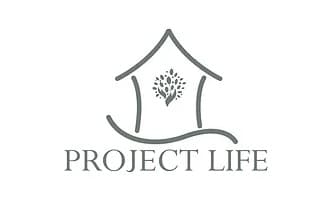
A thrivership program for people living with metastatic breast cancer and their loved ones
In this video from The Juniper Center, Lindsay McDonell, author of Your Dance with Cancer, discusses maximizing your chance of surviving when faced with a cancer diagnosis.
Play videoLearn more
References

